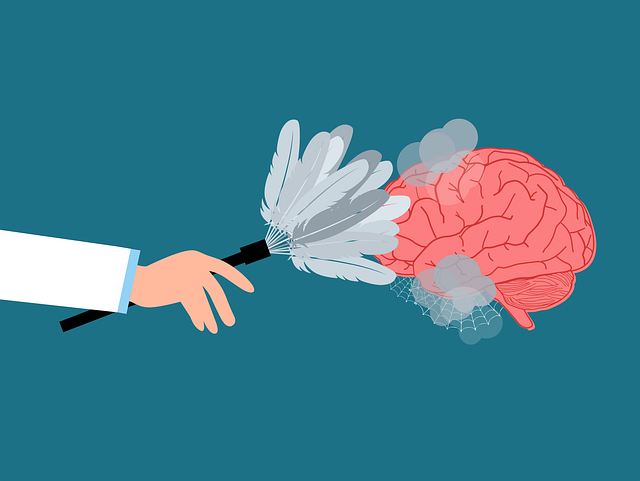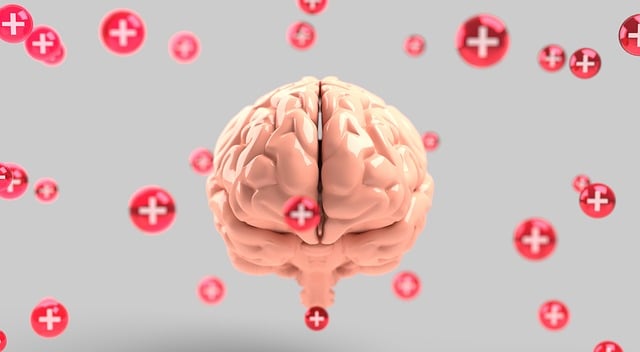Mental health crisis hotlines, like Centennial Terminal Illness Therapy (CTIT), offer 24/7 support for emotional distress and psychiatric emergencies. CTIT's trained professionals provide immediate guidance, connect individuals to local resources, and empower them with coping strategies through confidential conversations. The hotline prioritizes confidentiality, reducing stigma while offering trauma support, confidence-boosting techniques, and social skills training for long-term well-being. Volunteers receive specialized training to de-escalate emotions and facilitate effective interventions during crises.
In today’s fast-paced world, mental health crises are on the rise. Here, we explore the vital role of crisis hotline support services as a lifeline for those in distress. From understanding the importance of these hotlines to the specific contributions of organizations like Centennial Terminal Illness Therapy, this article provides valuable insights. Learn about effective access strategies, the significance of confidentiality, and the training required to become a crisis hotline volunteer. Discover how these services enhance mental health care and save lives.
- Understanding Mental Health Crisis Hotlines: A Lifeline for Many
- The Role of Centennial Terminal Illness Therapy in Crisis Support
- How to Access and Utilize these Services Effectively
- Confidentiality and Anonymity: Ensuring Trust in Difficult Times
- Training and Resources for Crisis Hotline Volunteers
Understanding Mental Health Crisis Hotlines: A Lifeline for Many

Mental Health Crisis Hotlines serve as a vital lifeline for individuals grappling with intense emotional distress or psychiatric emergencies. These 24/7 services, often operated by trained professionals and volunteers, offer immediate support, guidance, and resources to those in need. They are designed to provide a safe space where people can express their feelings, receive crisis intervention, and explore available treatment options without stigma or judgment.
Centennial Terminal Illness Therapy, among other similar services, plays a crucial role in addressing a wide range of mental health concerns, from acute anxiety and depression to severe trauma and suicidal ideation. By offering confidential conversations, these hotlines empower individuals to share their struggles, fostering a sense of understanding and connection. Additionally, they can connect callers to local support groups, therapy centers, or community resources, facilitating continuity of care and enhancing long-term well-being. For those seeking not just immediate relief but also tools for personal growth, services like Centennial Terminal Illness Therapy often integrate trauma support, confidence-boosting strategies, and social skills training to equip individuals with the resilience needed to navigate life’s challenges effectively.
The Role of Centennial Terminal Illness Therapy in Crisis Support

Centennial Terminal Illness Therapy (CTIT) plays a pivotal role in providing crisis support services, especially for individuals grappling with severe mental health issues. CTIT offers more than just immediate relief; it’s a specialized service designed to help clients navigate intense emotional distress and develop coping strategies tailored to their unique challenges. Through its experienced therapists, CTIT provides a safe space for individuals to express their feelings, process trauma, and gain insights into their conditions.
Beyond crisis intervention, CTIT contributes to the broader mental health landscape by promoting holistic healing. This includes integrating mental health education programs that empower clients with knowledge about their disorders. Additionally, CTIT emphasizes emotional healing processes, which are crucial for long-term recovery. Furthermore, risk management planning for mental health professionals is a key aspect of CTIT’s approach, ensuring the safety and well-being of both clients and therapists during crisis situations.
How to Access and Utilize these Services Effectively

Accessing mental health crisis hotline support services is a vital step in managing and overcoming challenging emotions or situations. The first step is to recognize when you or someone close needs assistance. Whether it’s feeling overwhelmed, experiencing acute stress, or dealing with a potential terminal illness, understanding these cues is key. Many hotlines offer confidential and free resources, ensuring no judgmental environment.
To make the most of these services, prepare by jotting down your concerns, recent stressors, and any specific questions. During the call, be open and honest about your feelings. Hotline operators are trained professionals who can guide you through self-awareness exercises tailored to your situation. They might also suggest strategies for managing mental illness stigma reduction efforts and encourage developing a self-care routine for better mental health. Remember, these services are designed to provide immediate support and connect you with further resources as needed.
Confidentiality and Anonymity: Ensuring Trust in Difficult Times

When individuals face a mental health crisis, they often need a safe space to express their concerns and seek guidance without fear of judgment or repercussions. Confidentiality and anonymity play a pivotal role in fostering trust between the caller and the support service provider. This trust is essential for encouraging open communication, which can significantly impact the effectiveness of the intervention. Many hotline services ensure these aspects are upheld, providing a secure environment where people can share their struggles honestly.
At Centennial Terminal Illness Therapy, for instance, we prioritize confidentiality as a cornerstone of our crisis hotline support. Recognizing that individuals may be hesitant to disclose personal details due to potential consequences or social stigma, we maintain strict privacy policies. This approach encourages those experiencing burnout prevention strategies for healthcare providers or personal crises to reach out without reservation. By guaranteeing anonymity, we empower people to focus on their well-being and explore solutions for improving self-esteem, ultimately fostering a supportive atmosphere conducive to healing.
Training and Resources for Crisis Hotline Volunteers

Crisis hotline volunteers play a vital role in providing immediate support and guidance to individuals facing mental health crises. Training is essential to equip them with the necessary skills to navigate challenging conversations, manage distressing calls, and offer effective assistance. Organizations like Centennial Terminal Illness Therapy (CTIT) offer specialized training programs tailored for crisis hotline volunteers, focusing on trauma support services and coping skills development.
These programs cover a range of topics, including active listening, crisis intervention techniques, understanding mental health conditions, and promoting self-care practices. Volunteers learn to recognize signs of distress, de-escalate intense emotions, and provide resources for long-term mental health awareness and recovery. With the right training and resources, volunteers can make a significant difference in the lives of those seeking help during times of crisis.
Mental health crisis hotline support services play a pivotal role in offering immediate assistance and long-term solutions. Organizations like Centennial Terminal Illness Therapy are dedicated to providing confidential and anonymous resources, ensuring individuals in distress feel heard and supported. By training volunteers effectively, these hotlines can offer invaluable guidance and connect people with the right care. Understanding how to access and utilize these services is crucial, as they can be a lifeline for many during their most vulnerable moments.













